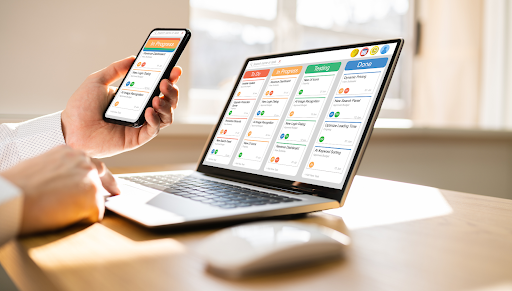Return on investment is one of the biggest indicators of a coaching engagement’s success today. Every client organization today looks for a measurable (or at least visible) impact on performance, and that’s where the impact assessment tool comes in.
But what is impact assessment in the coaching parlance? Basically, the impact assessment tool is a great framework to analyze the success of a recently-concluded coaching engagement and the client’s improvement over its course. The impact assessment is conducted by asking open-ended questions that are answered by participants and also their stakeholders.
Let’s take a look at the prime benefits of the impact assessment coaching tool below.
Benefits of the Impact Assessment Coaching Tool
The impact assessment tool is the most useful for individuals in leadership development programs or in leadership coaching engagements. Since such programs/engagements cover a whole arc starting from personal development to organizational impact, coaches can leverage the tool to assess individuals, teams or companies.
These tools are intuitive and user-friendly. They come with short, simple and easy-to-answer questions that don’t confuse the responder, and present a clear view of progress. Moreover, impact assessment tools also ask respondents their opinion on how to sustain progress.
Lastly, these tools are a great support for coaches who wish to record a snapshot of the impact they had on individuals or teams during the engagement, and present their returns on investment to HR and clients for future opportunities and career growth.
What an Impact Assessment Coaching Tool Looks Like
You can always check out Simply.Coach’s template for the Impact Assessment Coaching Tool and apply it on the coaching management software platform, or make your own. That said, Impact Assessment Tools usually comprise of the following response fields:
1. The client’s achievement of his/her goals:
What progress was made, which goals were achieved, and which weren’t achieved? What impact was made at an individual level in terms of behavioural change? A detailed answer is important here rather than a yes/no checkbox.
2. The client’s impact at an organizational level:
During the engagement, did the client undertake any initiatives or make any impact at an organizational level? This could include an impact on the team, or the organization at large.
3. The client’s impact at a community level:
Did the behavioral change the client underwent have any impact at the community level? Did the client impact any change at the community level?
4. The stakeholder feedback:
It’s useful to have the client’s peers, direct reports, and managers provide feedback as to the behavioral change they’ve observed within the client since the start of the coaching engagement – any impact that the stakeholders have observed can also be noted down here.
How to use it
A digital form is the easiest way to run the impact assessment coaching tool. Generate a google form or, if you’re using coaching management software Simply.Coach, just use the template and create a new Digital Tool.
The best time to use the impact assessment coaching tool is right after an engagement, as it consists of open-ended questions that are answered by participants and their stakeholders. The purpose is to get a holistic view of impact at individual, organizational and societal levels.
Ground work for the impact assessment tool
If you haven’t yet commenced your engagement, it’s a good time to set some ground work in motion. To run a successful impact assessment tool after an engagement, you need to ensure a few things are in place at the start of the engagement and in the goal development stage:
1. Define Clear Objectives and Outcomes:
Start by defining clear objectives for the coaching engagement. What specific outcomes do you want to achieve through coaching? These objectives will serve as the foundation for assessing the impact later on. Ensure that the objectives are measurable and aligned with the individual or organizational goals.
2. Establish Baseline Measures:
Before the coaching begins, establish baseline measures to gauge the starting point. These measures can be quantitative or qualitative, depending on the nature of the coaching goals. Examples include performance metrics, self-assessment surveys, feedback from colleagues or supervisors, or self-reflection exercises. The baseline measures provide a reference point for comparison throughout the coaching process, and the success at the end of the journey.
3. Track Progress and Development:
During the coaching engagement, track the progress and development of the client. Regularly gather feedback and data to assess the changes occurring as a result of coaching. This can include self-assessments, surveys, performance reviews, or feedback from supervisors, peers, or clients. Continuous monitoring allows for timely adjustments and ensures that the coaching remains on track, so your impact assessment tool isn’t a surprise right at the end.
Calculating the ROI
If you want to take your impact assessment to the next level, consider measuring the return on investment (ROI). Calculate the financial or non-financial benefits that can be attributed to coaching. This could include increased productivity, improved employee engagement, enhanced leadership capabilities, or reduced turnover. Compare the benefits achieved with the costs invested in coaching to determine the ROI.
Conclusion
Best used at the end of an intervention, impact assessment coaching tools and techniques are easier to run today because they’re run digitally.
If you find the right coaching management software, it also comes equipped with similar coaching tools and techniques. Simply.Coach, for example, comes with a Digital Tools feature that helps you create custom forms for any purpose on the platform itself, run multiple rounds of feedback, and create visual reports from the responses. The coaching management software’s impact assessment tool is a power-house in itself when it comes to measuring the KPI of any coaching program.
FAQs
1. Why are assessments important in coaching?
An assessment is a useful way for coaches to track engagement performance, participant details like personality, leadership styles, strengths, etc.
2. What are the benefits of Impact Assessment coaching tools and techniques?
Some of the benefits of Impact Assessment coaching tool are:
- It’s a comprehensive assessment tool to demonstrate the impact of coaching on the client
- Its structure is simple, clear and concise, where clients can view their progress at one go
- It aids in easy highlight of the ROI and ROE of the program
About Simply.Coach
Simply.Coach is an enterprise-grade coaching software designed to be used by individual coaches and coaching businesses. Trusted by ICF-accredited and EMCC-credentialed coaches worldwide, Simply.Coach is on a mission to elevate the experience and process of coaching with technology-led tools and solutions.
Read More:
5 Digital Coaching Tools for Coaching Success [& How to Pick One]
All You Need to Know About Meta Model Questions
Emotional Audit: A Powerful Coaching Tool to Help Clients Regulate Their Emotions
Marshall Goldsmith’s Daily Questions Can Help Your Clients Lead More Satisfied Lives
Using the Vision Board Exercise to Help Your Clients Manifest Their Dreams
Help Your Clients Make Better Decisions With the Six Thinking Hats

Content Specialist @Simply.Coach
Jayashree Mukherjee is a content specialist by day and a content junkie (on OTT) by night. Passionate about traveling, street food and overturning the underuse of em dashes — she would have been a globe-trotter if she hadn’t been so lazy.









